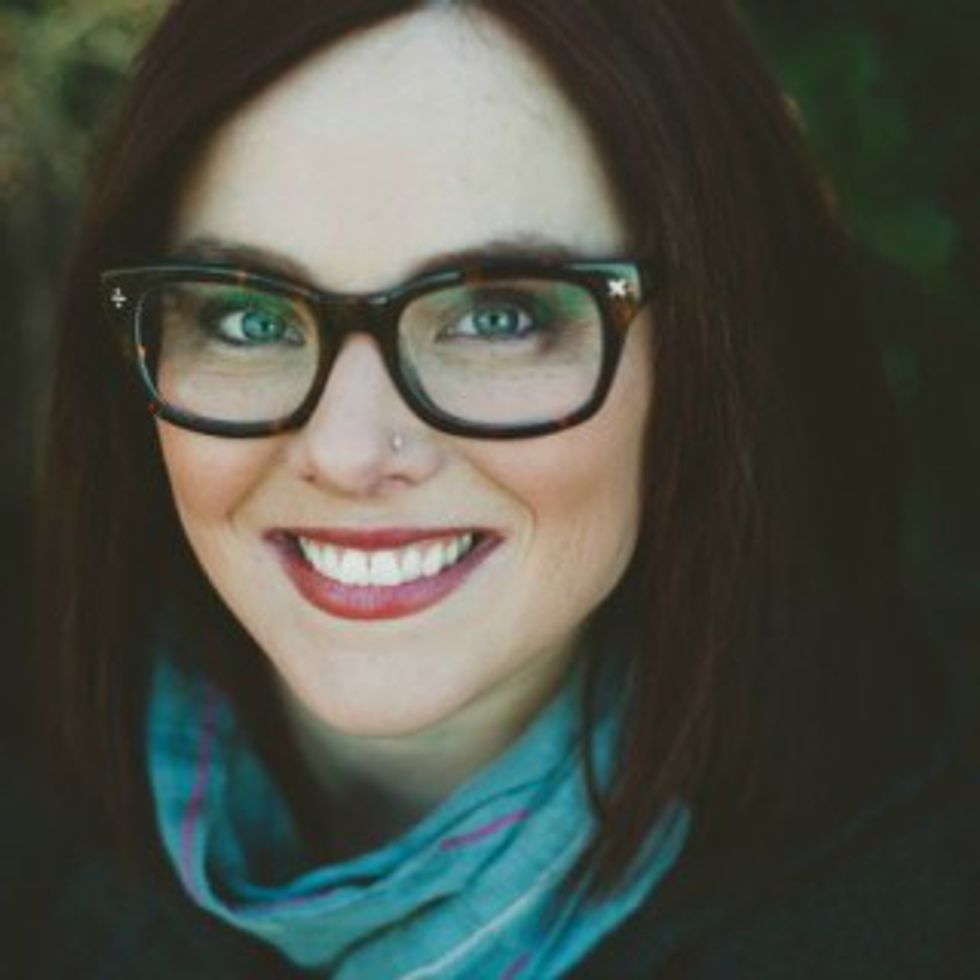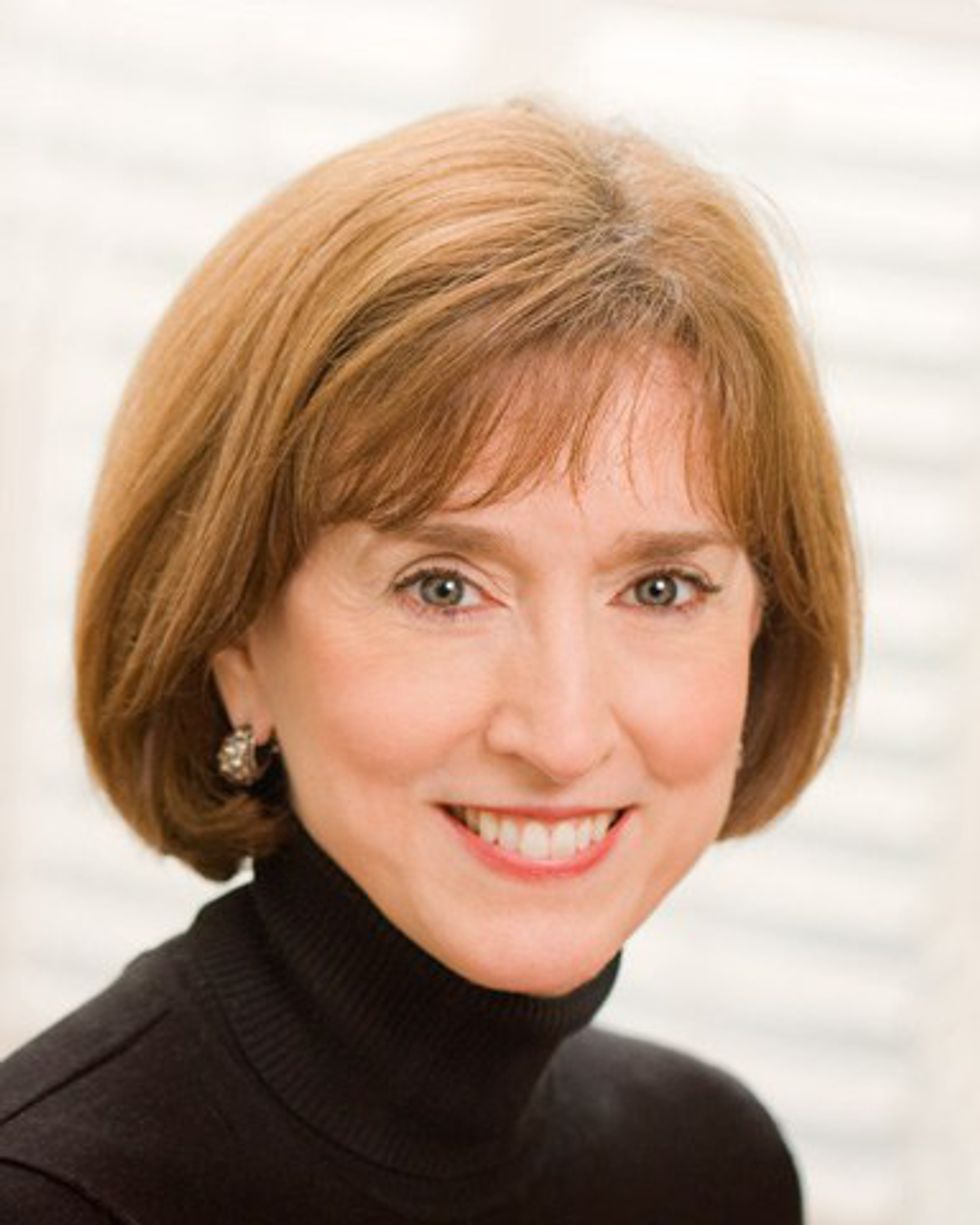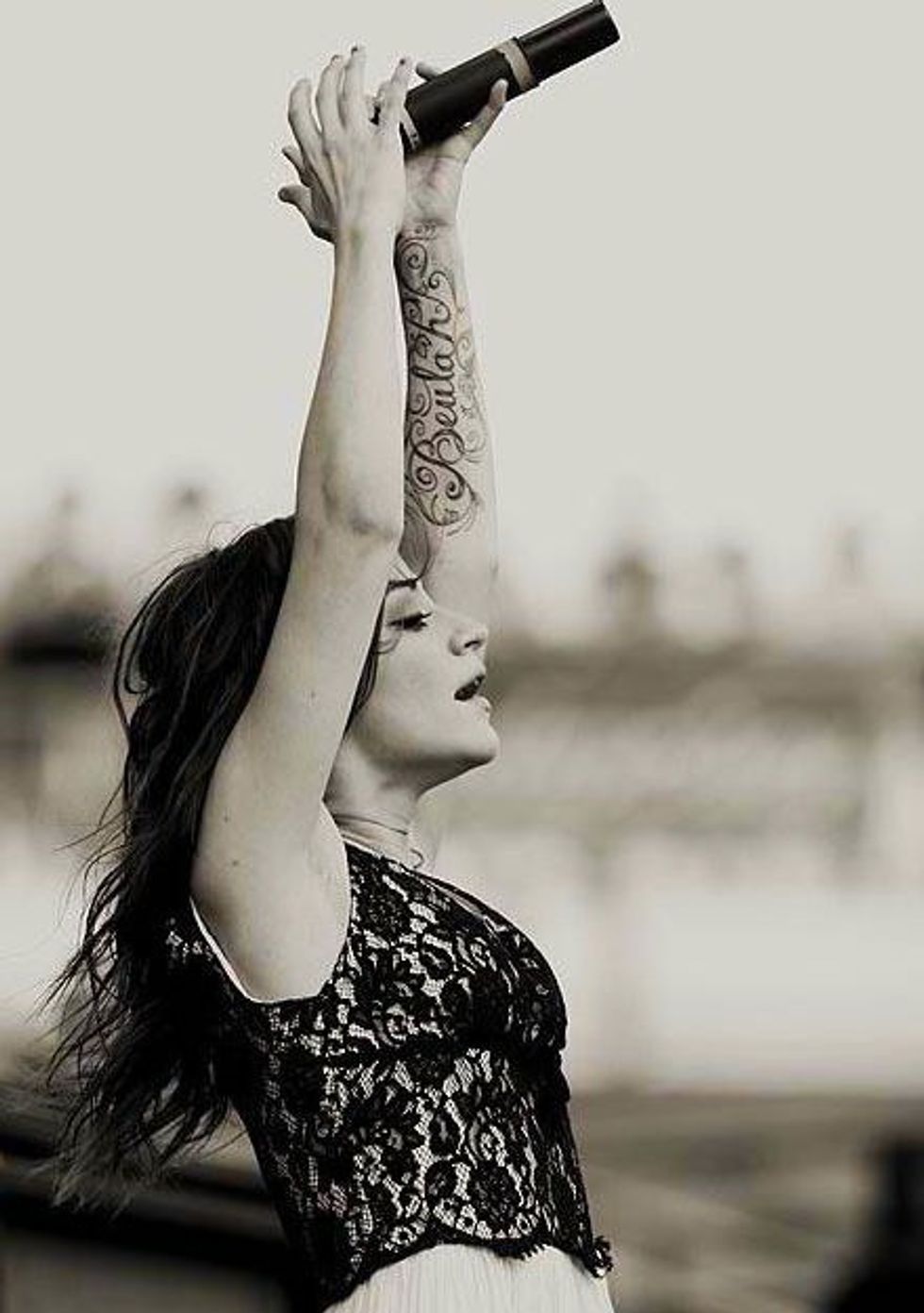Spiritual midwives is a term I borrowed from author Sarah Bessey's book, Jesus Feminist. We all have people who mentor us and counsel us into adulthood. Spiritual midwives are people who act as mentors, directly or indirectly, but with that painful component that comes with childbearing. What I mean is that becoming a full person, a full woman, and one who is bent on following Jesus in a world that is full of oppression, greed, and injustice, hurts. It does. It requires a lot of sweat, pain, tears, and work. Paul himself used the analogy of childbearing to describe his pain whenever followers of Jesus drew back on their walk with God. And isn't life just like that? It seems sometimes that for every two steps we take, we recede ten steps more. But at least there are people whose words and actions shape and renew our minds. For me, these people ("spiritual midwives") who have shaped my thoughts and evolving faith are, of course, women I know, like my family members, my friends, my mentor.
However, you don't know any of them.
So here are four women who have, indirectly, helped me move along the growing pains of my evolving faith as a woman, a Christian, and a feminist.
1. Sarah Bessey
I owe Sarah Bessey the title of this article and everything that title entails. Sarah started off as an award-winning blogger in British Columbia and proceeded to write two books, Jesus Feminist and Out of Sorts. She's currently working on her third book.
I have only read Jesus Feminist, a slim bright yellow book that has changed my life. Sarah begins Jesus Feminist as a storyteller by a bonfire at the beach inviting all women from all walks of life to join her. She creates a safe, honest space for everyone to be truly honest about how the church has hurt us as women by treating us as second-class citizens. When I first began to wrestle with what it means to be a feminist and why God allows so much injustice to occur to women, I developed into a bitter angry cynic who couldn't get through a full-bodied conversation because my arguments would turn into angry fights and I'd be so wrathful I could not reason with anybody, nor anybody with me.
Sarah's hopeful, loving, wise voice gave me pause in my anger and made me realize that in order to initiate an honest conversation with somebody who doesn't believe women can be leaders in all areas of life, I would need to change the climate of my heart. I would need to be fully convinced of what I believed first in order to convince someone else. And I would only convince someone else when I stopped caring so much about titles and power roles and started caring more about works of the kingdom. It isn't the women, or people in general, who angrily demand authority who get it--rather, women who tirelessly, creatively, and passionately work toward justice and mercy have a God-given an authority no man or woman can question. How can you, when these kingdom workers know God so intimately they're like radiant reflections of his power?
For this, and for wrestling through those tangled passages in the New Testament (you know, like the ones of women wearing head coverings, women staying silent in church and being forbidden to teach men) in a scholarly, orderly, understanding manner, I am so grateful to Sarah for redirecting the anger in my heart into passion for a calling from God to his warrior-women I now know not to doubt ever again.
2. Joy Davidman-Gresham
Known as the Jewish American woman who married C.S. Lewis later in life, Joy's literary achievements have been shadowed by the towering accomplishments of the 19th century literary giant who still influences readers of all generations and backgrounds. However, long before meeting Lewis, Joy was a veritable academic force to contend with. She graduated high school at fourteen, went to college at fifteen, graduated with honors at age nineteen, and became a published author and poet. She began corresponding with C.S. Lewis in 1950, intrigued by his writings on faith. She herself was an atheist who later converted to Christianity. She divorced her husband and left with her two boys to England, where she and Lewis married in 1956. Joy was always a sore thumb in the social gatherings of Lewis' society. She was outspoken, brash, brilliant, and fearless. She stole his heart and was his intellectual equal, if not, as some sources sustain, his superior.
The reason why I call Joy one of my spiritual midwives is because she co-authoredTill We Have Faces, Lewis' favorite book out of all the ones he wrote. Those who knew Lewis before and after Joy and read his work before and after his friendship and marriage to her witness to the change she brought upon his life. By marrying a strong, independent, capable woman, Lewis became a man ahead of his time. He not only wrote a book through a female heroine's point of view, but he also made her a strong ruler and a deep thinker, like the woman Joy was.
Till We Have Faces was the very first book I read in which the protagonist was a female whose best assets were not her looks, but her ability to lead, to fight in battle, to organize a kingdom, and to love fiercely. While Lewis' society looked down upon Joy for being divorced, out-spoken, and American, he translated the Joy he knew into the pages of the book, into the character of Orual. Till We Have Faces is my favorite book to date because it's real and transcendent at the same time. It resonates with the strong, capable, fiercely-loving women who have raised, birthed, loved, taught, and befriended me throughout my life. And it also gives me a vision for the kind of women who exist behind the layers of cultural stereotypes and imposition; women who rule kingdoms, raise sisters, fight battles, and wrestle with gods.
3. Carolyn Custis James
I avoided Carolyn Custis James' book Lost Women of the Bible because at the time when I came across it (in my roommate's bookshelf) I was fed up with Christian books for women. From middle school on to senior year of high school, I'd been fed with "Christian" books about women with pink flowers on the cover that, no matter how candidly inclusive the author referred to me ("Hay, gurl") I still never felt those books applied to me. I won't mention titles here, but these books were given to me by people I trusted as spiritual mentors and guides. What each one of those books told me, in basic terms, was that women were second to men in the kingdom of God. Women had "different but equal" roles to men--but women couldn't speak from a pulpit, couldn't make choices right along with men, and couldn't focus on global issues that required leadership and problem-solving skills. No, these books reduced women to topics of dating, marriage, purity, friendships, etc. Not that these things aren't important, because they are, but these books forced me into a narrow slit of Christianity that I now know is ridiculously small for a God with such a big heart and design for creation.
So when I came across Carolyn's book, it was with much trepidation and with a cynical desire to stumble upon another silly prescription for women I could rant about to my friends.
What I came across was rather paradigm-shattering.
Carolyn goes to the very beginning of the narrative of Scripture, right to the moment when God created humans, especially Eve, and what the original Hebrew reveals about God's intent for women. Through Carolyn, I discovered the meaning of the word ezer, the syllables God breathed when he called Eve to life. Now, we have translated that word as "helpmeet," a word so nebulous, boring, and obscure in meaning it makes it so easy to do whatever we want to oppress women's roles for lack of understanding what God meant them to be. God's role for women was never nebulous. Ezer, or warrior, is a word used in the Old Testament for when armies were locked in fierce battle and one side was losing terribly. Imagine that flailing army,at the threshold of defeat, about to cave in, when from the mountains (Lord of the Rings style) come fresh hordes of armies ready to step in and take up the fight. Those helping armies are the ezers. Many times God referred to himself as Israel's ezer, Israel's divine help. God's help was of a divine nature. Adam's help was of a human nature, fit to his humanity, not fit to his whims and wishes. Eve was there to encourage him when he fell and check him when we erred, and vice versa. They were both meant to rule the earth together, and to bear the image of God together.
Carolyn drew out the word ezer from me from the murky depths of lazy ambiguity that has kept women out of leadership roles that rightfully belong to them. When you name things, when you identify them, it's so much harder to let the truth stay in the shadows.
4. Lacey Sturm
I owe the aforementioned women for their scholarship and relentless search of manuscripts for truth that mentored me and shaped my mind into knowing and believing God's heart towards women. I often wonder what I would be like today if I had learned all of this sooner rather than recently.
But in a very visceral way, I feel that these truths have always tugged at me in the form of longing and music. Even while I was being fed lies about women's roles in the world, not just in church, Lacey Sturm's screamed songs always pulled me out of my comfortable shape into the thorny arms of longing for more than what I knew. I listened to the band Flyleaf while Lacey was still its lead singer. I remember lying on my bed, staring at the ceiling, while Memento Mori blared from the stereo. The screaming and crazy guitar solos made me uncomfortable because it sounded like what I'd been taught by church tradition "demonic" music is like. But past the discomfort, Lacey's piercing voice shattered the tiny box I had put God in. Her tattoos, her crazy dancing on stage, and the lungfuls of air she gulped in with such desire to be fully alive made me feel like she actually knew God and sang to his face. When I read her book, The Reason, the shattering of the box continued until my longing to be raw and honest before God outnumbered the quiet, proper, "lady-like" lies I'd been told.
In her book, Lacey was honest about her suicidal past, her same-sex relationship during her teenage years, her first marriage and divorce, her love story with her current husband, her struggle with cancer that threatened her career and the joys and pains of motherhood. The vast history of Lacey's pain has built in her a huge heart for the hurt of so many people. She plays in bars and clubs, she plays where the people are hurting, where they go to drown out the noise with good music. She listens even as she sings. She brings her kids to her rock concerts and they wait behind the curtains off-stage, entertained with their coloring books and noise-canceling headphones. Her husband rocks his guitar as companion to her mind-boggling vocals. Lacey's life is not traditional at all, and yet it looks like everything that's right about being broken humans who love Jesus.
One segment of her book, The Reason, recounts the story of Lacey's struggle with carrying the pain of so many people she interacted with as a musician. She tells of how she couldn't sleep at night, how she sobbed her eyes raw with hurt for others. Then one day a pastor invited her and her husband Josh over to his house. After a while, without any prompting from either Josh or Lacey, the pastor looked her in the eye and told her that she was burdened with the pain of so many, but that she had to let the burden go. That she had to let her husband help carry her burden. And that--and here is where I stopped breathing--God had chosen her to lead in that household, and in her music, for the sake of all the hurting people she sang love for. And as a leader, she needed to let her husband support her as she led in her ministry. Once again, I think that when a woman lives her calling so fully, you can't help but affirm the authority and leadership you already see in her life.
We talk about submission and power and authority in terms of subjugating others to ourselves and making them less so we seem like we're more. I know the conversation around women's roles in the church and in the global scene is so complex, with so many layers, so many relationships, so many different callings.
But know that whether you're in the home or at work, whether you're in the West or the East, you are called to lead as a woman. Men alone cannot bear the image of God by themselves. Men alone cannot draw out the raw resources of nature and craft them into something meaningful. They were simply not meant to work alone.
Women alone can't do it either. It takes all of us together.
And I know that I've barely scraped the tip of the iceberg when it comes to conversations about women and the church. My own perspective is narrow, which is why we need all women from all walks of life to chime in and live our their calling fully.
I need my fellow women, and cannot do kingdom life without them.
If you want to learn more about women's roles globally (not necessarily only in the church) I encourage you to check out these books:
Half The Sky
A Year of Biblical Womanhood
Searching for Sunday
God's Word to Women
We Should All Be Feminists
Half the Church
The Reason
Jesus Feminist
Out of Sorts
Three Cups of Tea
And also these books, just because they're so good:
Bad Feminist
Yes Please
All About Love
milk and honey
Mom & Me & Mom
Persepolis
May we all join this conversation, chiming in with our stories and work, making it so big and loud the rest of the world and the church won't be able to ignore it any longer.























